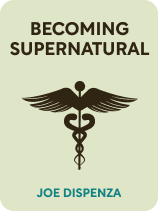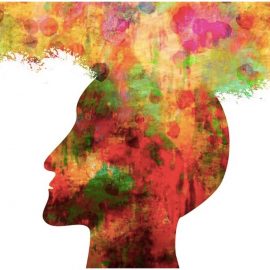

This article is an excerpt from the Shortform book guide to "Becoming Supernatural" by Joe Dispenza. Shortform has the world's best summaries and analyses of books you should be reading.
Like this article? Sign up for a free trial here.
How does trauma affect the brain? What can you do to overcome trauma’s effect on your mind?
Traumatic experiences influence your life long after the trauma has occurred. This is because trauma elicits very strong emotions that get stored in your subconscious. Therefore, to counteract trauma, you need to address it on the subconscious level.
Here’s how trauma affects your mind, according to Joe Dispenza.
Trauma Keeps You Stuck in the Past
How does trauma affect the brain? Traumatic experiences evoke some of the strongest emotions we’ll ever feel, so they become deeply ingrained in our brains. This means trauma keeps us stuck in the past via neural circuitry, causing us to get caught in vicious cycles of negative thought and emotion—we’re constantly perceiving the present in light of what happened to us in the past.
Dispenza also explains that our brains don’t necessarily distinguish between an actual experience and a memory of one—in other words, every time you remember an experience, your brain essentially re-lives it as if it were happening all over again. So, when you have a traumatizing experience, the memory of it can cause your autonomic nervous system to have a stress response, and when your body is frequently in this stress-response mode, it can wreak havoc on your health. So overcoming these deeply-ingrained thought-emotion patterns is crucial for both your mental and physical health.
One key to overcoming these trauma-induced stress responses is to recognize that your autonomic nervous system operates on a subconscious level. This means that any technique for interrupting and changing these patterns must act on a subconscious level as well. As we’ll see in Part 2, that’s what Dispenza’s meditation techniques are designed to do.
| Chronic Stress Causes Disease In When the Body Says No, Dr. Gabor Maté explores the link between trauma and diseases such as cancer, ALS, MS, and common gastrointestinal conditions. Considering the links that have been observed between these diseases and stressful life experiences, Maté argues that chronic stress is ultimately to blame—and this is frequently caused by childhood experiences of perceived threat that go unresolved. This means that your negative thought-feeling patterns may be very deeply ingrained and difficult to break free from. He recommends the following to address chronic stress from deeply-ingrained patterns: Listen to your body: Start tuning in more consciously to what your body is telling you. Some signals of underlying stress include rapid heartbeat, frequent urination, excessive sweating, digestive issues, and unexplained pain such as frequent back pain or headaches. If you have these issues, try talking to a therapist or looking for meditation techniques to deal with them. Be your authentic self: Many of the patients Maté treated were living to satisfy others’ expectations at the expense of their own desires and true selves. He says to recognize this in yourself, watch for guilt—if saying “no” to something makes you feel guilty, but saying “yes” causes resentment, Maté says you are living for other people in an unhealthy way, and you should choose the guilt. The resentment will be much more damaging. Connect with others: Maté says we all need to develop healthy support networks. Copious research shows that lonely, disconnected people are at greater risk for illness, while social support alleviates stress and decreases risk of disease. So seek out stronger social support networks. Especially if you’re suffering, find others to connect and form emotional attachments with. Tend to your spirit: A truly holistic approach to health must involve tending to your body, mind, and spirit. Maté says connecting with something beyond yourself could mean anything from prayer to connecting with nature, practicing meditation, or developing your creativity. |

———End of Preview———
Like what you just read? Read the rest of the world's best book summary and analysis of Joe Dispenza's "Becoming Supernatural" at Shortform.
Here's what you'll find in our full Becoming Supernatural summary:
- How to use the power of your thoughts to transform your physical reality
- Why you may be trapped in a vicious cycle of negativity
- A unique meditation method you can use to reprogram your subconscious






